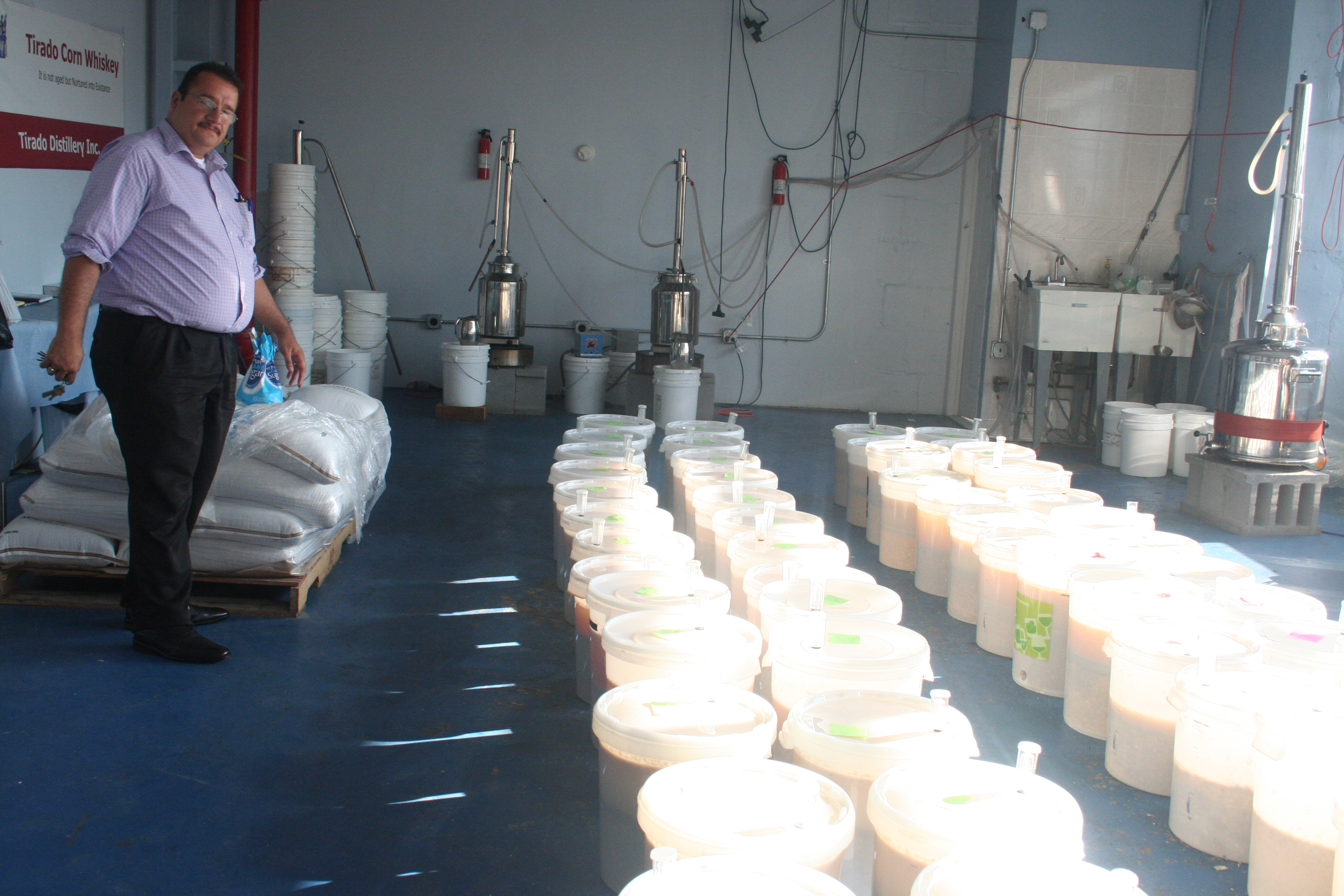
Mott Haven physician moonlights as Puerto Rican liqueur distiller
The unmistakable scent of molasses on the third floor of East 134th street in Port Morris beckons visitors to the borough’s first official distillery since Prohibition.
A Mott Haven native, Dr. Renee Hernandez, 39, has run tiny Tirado Distillery since 2002, while practicing internal medicine nearby.
Hernandez decided to enter the liquor business after taking a weekend trip to Puerto Rico with his father-in-law four years ago. While visiting the island, the two men took a tour of the Bacardi distillery in San Juan. Hernandez learned that the company creates its world-famous rum by charring the insides of the barrels, forming a carbon layer that filters the rum. That process results in the smooth taste Bacardi is known for.
“I thought, ‘ok, how can we adapt something like that and make our own liquor?’” said Hernandez.
Armed with curiosity and a degree in organic chemistry from Fordham, Hernandez began to experiment. The result was a liqueur he named Supreme, a legal version of pitorro, Puerto Rico’s outlawed moonshine. The company is yet to officially launch it.
But since making Supreme, the distillery has marketed other products, such as Pitito, named after Hernandez’s father, Pito. Hernandez notes that his creations appeal to older Puerto Ricans who have lived in the Bronx for a long time.
Although the inspiration for the liquors stems from Bacardi, Hernandez wants his brand to have its own flavor and identity.
“It’s not something that’s copying something else,” he said. “It’s something that’s very unique to us.”
Since Tirado opened, Heranandez has sold to liquor stores across the city and beyond, including several upmarket shops in lower Manhattan.
“We have a lot of tourists,” said Gary Itkin, general manager of Bottlerocket Spirit & Wine in lower Manhattan, which sells Tirado’s corn whiskey gold and dark black rum.
“They want something interesting and local. We tell them the back story,” he said.
Although Tirado’s liquors are forced to compete with better-known rums and whiskeys, many of which are also cheaper, Itkin says Tirado’s prices are fair because of the high quality, artisan operation. A 375 ml bottle of the dark rum sells for $19 at Bottlerocket.
Jesse Avraham, manager of St. Marks Wine and Liquor, says the Tirado line has more shelf space than any other local product in the section dedicated to local spirits. Along with the taste, Avraham said, doing business with a small vendor like Tirado has benefits.
“He left [after bringing samples of the rum]. Five minutes later, we called him. Ten minutes later, he’s back to deliver,” Avraham said.
Although Tirado products don’t have flashy labels, Avraham calls it “one of the easiest drinking rums” that doesn’t need fancy packaging to sell.
Despite his attention to the aesthetics of Caribbean rum, not a drop passes Hernandez’s lips. His main attraction is to the math and science of the distillation process.
“You first start off playing with different variables. Once you get it with a particular taste, you lock those variables and repeat it and repeat it to see if you’re going to get a similar flavor,” he said, crediting that scientific precision for the consistency of his products.
Most of the liquors are made from local organic corn, another element Hernandez says is crucial to the quality of the end product.
Hernandez doesn’t see any contradiction between his profession as a healer and his more recent foray into the liquor business.
“It’s overindulgence in anything that’s a bad thing,” he said. “So drink the best liquor you can,” he said. “Enjoy the drink that you have, but drink responsibly.”


[…] By Voices of NY | Mott Haven Herald Go to original story No […]